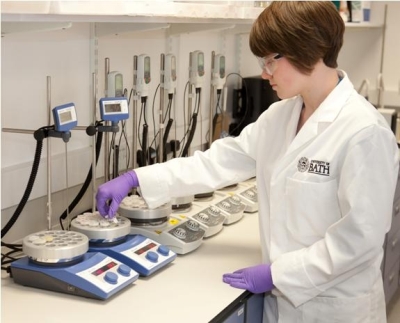Asynt has announced that the company has delivered a custom DrySyn heating block system to the Wilson Structural Chemistry Research Group at the University of Bath.
 Asynt's custom DrySyn heating block system
Asynt's custom DrySyn heating block system
Asynt partnering with the University of Bath specifically designed the adapted DrySyn that simplifies and speeds up the development of crystallization methodology in order to control the formation of polymorph, and to produce multi-component crystals having physical properties like porosity, solubility and optical effects.
Many industrial segments that include the agrichemical and pharmaceutical industries have a requirement of controlling the solid structure of crystalline materials. Several factors are there that affect the formation of the crystal, which includes choice of solvents or solvent, crystallization temperature and the presence of additional part and additives in the crystallization method.
According to a research fellow at the University of Bath, Dr Lynne Thomas, fluctuation in temperature can induce crystallization and can possibly act as a switch control through which we can obtain stable crystalline forms. Temperature control of crystallizing samples is considered to be significant in this field, because it is a parallel approach that facilitates systematic study of the consequences of crystallization states on the solid form. A range of potential solvent and temperature combinations creates screening conditions by means of a parallel approach to crystallization rendering the process more efficient and essential, Dr. Thomas stated.
Dr Thomas commented that custom heating blocks have been specifically designed and installed in the Crystallisation laboratory by the university in association with Asynt in order to optimize the temperature-controlled space on every DrySyn heating block. The adapted DrySyn heating block has demonstrated its potential to increase the speed and flexibility of low to medium throughput crystallization experiments, according to him.